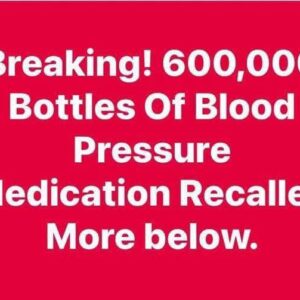Realizing that my husband had been tricking me by sending my rent money straight to him and his mother, I took matters into my own hands to teach them a lesson
I never imagined that uncovering a single, carefully hidden secret could shatter everything I thought I knew about love, trust, and partnership. Yet, one crisp winter evening, as I was coming home from work, the truth revealed itself in the most unexpected way—and it forced me to confront the deception that had been slowly poisoning my marriage for years.
My name is Caroline Hughes. For as long as I can remember, I’ve believed that a marriage should be built on mutual respect, shared responsibility, and, above all, honesty. I prided myself on being a hardworking professional and an independent woman who contributed her fair share to every aspect of my life. When I met Logan Pierce, I was drawn to his charming optimism and the promise of a partnership that would be equal in every sense. We had been married for five years, and together we built what I thought was a secure, stable life—a life marked by small joys, quiet evenings at home, and a shared dream of building a future together.
I still remember the day Logan first called me from work, his voice bright and full of excitement. “Caroline, I’ve found the perfect apartment,” he had exclaimed, practically bouncing with enthusiasm. “It’s a modern two-bedroom unit with everything we’ve ever wanted—the updated kitchen, the balcony with a view… and the rent is only $2,000 a month! We’ll split it 50-50, just like we agreed.” I had smiled at his excitement, imagining our future together: lazy Sunday mornings on our balcony, a cozy home where every expense was shared, and the comforting belief that we were equals in every way.
That promise of shared responsibility was the cornerstone of our relationship. Every month, without fail, I would transfer exactly half of the rent money into our joint account. It was a simple arrangement—clear, fair, and what I believed to be built on trust. Yet, as life often teaches us, appearances can be deceiving.
One bitter December night, after a grueling 12‑hour shift at the hospital where I worked as a consultant for a local magazine, I stepped into the aging elevator of our apartment building. I was tired, my thoughts weighed down by the exhaustion of the day, when a young, bubbly neighbor named Taylor bounded into the elevator. “Hey! You’re in the Pierce apartment, right? I’ve heard so much about it!” she chirped brightly. But then, in a casual remark that struck me like a bolt of lightning, she added, “Mrs. Loraine owns it, you know—the woman who always brags about how she made a killing when the building opened. And apparently, Logan moved in with her before his last breakup.”
I froze. “Mrs. Loraine?” I echoed, the unfamiliar name sending shivers down my spine. I had never heard any mention of this woman associated with our apartment. As Taylor continued chatting, describing how Logan and his mother had actually purchased the unit years ago, I felt a cold dread settle in my stomach. When the elevator doors opened, I stepped out silently, my mind racing. Could it be that everything I believed about our financial arrangements was a lie?
In the days that followed, I couldn’t shake the unsettling feeling that something was terribly wrong. Determined to discover the truth, I began poring over public records and scrutinizing every document Logan had once proudly shown me. My search led me to a shocking revelation: the property deed for our apartment was registered solely in the names of Logan Pierce and his mother, Marianne. The very apartment that I had believed was a shared investment was, in fact, owned by him and his family. All those months—and years—of transferring my hard-earned money were not building a future for us as equals. Instead, my share was being funneled directly into accounts that did not include me.
I remember the moment I first saw the deed. I sat at my small dining table late one evening, a stack of printed records spread before me, and felt the crushing weight of betrayal. The figures were clear: every cent of the $2,000 monthly rent I had contributed was going straight to Logan and Marianne. My heart pounded with shock and indignation. How could the man I loved have deceived me so completely? The trust I had placed in our partnership was shattered in that instant.
The discovery of the deed was only the beginning of a long, painful journey. In the following weeks, I began to compile every piece of evidence I could gather. I retrieved old emails, text messages, and bank statements. I compared the receipts from our rent payments with the records I had painstakingly obtained from the local property office. Each document confirmed what I already feared: for two years, I had been financially exploited by the very people I had trusted most.
The emotional toll was immense. I felt a mixture of anger, humiliation, and sorrow—a cocktail of emotions that left me restless and sleepless. The betrayal was not merely a financial slight; it was a deep wound in the fabric of my relationship with Logan. I had always believed in our promise of equality. We had built our life on the assumption that we were partners in every way. Now, I was forced to confront the harsh reality that everything was a façade.
I began to isolate myself, spending long hours in our quiet apartment, trying to understand where it all went wrong. The images of the cheerful promises we had made to each other now haunted me. I remembered that warm evening on the balcony when Logan had told me about the apartment. I recalled the tender kiss we had shared—a kiss that now seemed to have been nothing more than a prelude to deception. Every memory was tainted by the knowledge that the foundation of our marriage was built on lies.
One sleepless night, as I sat by the window watching the city lights flicker in the distance, I made a decision. I would reclaim what was rightfully mine. I could not allow the betrayal to define me. Instead, I resolved to expose the fraud and restore my independence. My heart was heavy, but beneath that sorrow burned a fierce determination to set things right.
I began by meticulously organizing all the evidence I had gathered. I created folders on my computer, scanned every document, and even took photos of the bank statements and property records. The numbers did not lie: over the course of two years, I had contributed exactly $24,000 to what I believed was a shared household expense. Instead, that money had been siphoned off by Logan and Marianne. I knew I needed to act—both to reclaim my finances and to restore my dignity.
The first step was confronting the deception head-on. I waited for a moment when Logan was home alone. One evening, after we had finished dinner and I had dutifully transferred my share of the rent as always, I approached him in our living room. “Logan,” I said softly, “we need to talk.” His eyes, usually so warm and inviting, flickered with something I couldn’t decipher—a mixture of surprise and apprehension.
I laid out the evidence before him: printed copies of the deed, the bank statements, even excerpts from our lease agreement. My voice was steady, though my heart pounded like a drum. “I trusted you, Logan. I believed we were partners in every way. But it turns out that our apartment is in your name and your mother’s, and my money has been going into your accounts all along.” I could barely contain the hurt in my voice as I continued, “Explain this to me.”
For a long, agonizing moment, Logan said nothing. Finally, he sighed, his shoulders slumping as if the weight of his deception were physically crushing him. “Caroline,” he began, using my first name—a name that suddenly felt foreign on my ears—“I’m sorry. I never meant for you to find out like this. It started as a way to manage our finances, and then it just… escalated. I thought I could fix it later, but I was wrong.” His words were feeble and unconvincing, and I felt my eyes well up with tears of both anger and heartbreak.
That confrontation marked the turning point. I refused to allow the betrayal to continue. I decided then and there that I would take control of my life—financially, emotionally, and legally. I told Logan that I wanted a full accounting of every dollar, and I warned him that if he did not come clean and return the money, I would have no choice but to take legal action. I also informed him that I would be filing for divorce immediately, as the foundation of trust in our marriage had been irreparably broken.
The next few days were a whirlwind of emotions. I began the painstaking process of separating my finances from his, opening new accounts in my name and carefully transferring all of my earnings to these accounts. Every transaction felt like a small act of liberation—a reclaiming of my autonomy after years of subjugation. I reached out to a trusted attorney, who assured me that with the evidence I had amassed, my case was strong. The attorney explained that cases of financial deception in marriages were not uncommon, but that mine was particularly clear-cut, given the documented evidence of the misappropriated funds and the fraudulent lease.
I also sought support from close friends, who rallied around me with words of encouragement and empathy. My best friend, Sarah, who had known me for over twenty years, said, “Caroline, you deserve so much better than this. You’ve always been the strong one, and now it’s time for you to shine.” Her words, along with those of other friends, bolstered my resolve. I realized that while the pain of betrayal was deep, I had the strength to rebuild my life on my own terms.
In a decisive move that surprised even me, I visited the bank where our joint account was held. With trembling hands and a heart full of determination, I withdrew every dollar that had been taken from me over the past two years—every cent that had been siphoned off by Logan and his mother. It was a symbolic act of taking back what was mine, a reclaiming of the money that represented not only my financial contributions but also my trust, my sweat, and my years of hard work.
But I knew that reclaiming the money was only part of the battle. I needed to send a message—a final, public declaration that I would no longer allow deceit to dictate the course of my life. I began by meticulously packing up my personal belongings. Every piece of furniture, every trinket that I had purchased with my own money, was carefully gathered and set aside. I did this not in haste, but with a quiet dignity, knowing that soon I would move into a new apartment—a space that I would call my own.
On the morning of the rent due date, December 28, everything came to a head. That day, as Logan kissed me goodbye before leaving for work—his departure routine as familiar as the rising sun—I felt an icy resolve settle within me. I watched him walk away, his back turned, and then I began to put my plan into motion.
I spent the next hour methodically clearing our shared apartment of all my personal belongings, leaving behind an empty space that once had been filled with memories and love. Every item I removed felt like a step toward reclaiming my independence. I then went to the bank to secure my funds and, with a mixture of righteous anger and cool determination, signed a lease for a new apartment. In a deeply symbolic act, I paid the first month’s rent using the money that had been fraudulently taken from me. This new apartment, modest and secure, would be the foundation of my future—a future built solely on my own terms.
That very afternoon, I drafted a final, scathing letter addressed to Logan. I carefully taped it to the front window of our now-empty apartment, ensuring that it would be seen by anyone passing by. The letter read:
Dear Logan,
I hope you enjoy what you think is YOUR apartment.
For two years, you and your mother have been scamming me out of my hard-earned money, and I finally have had enough.
I have taken back every cent you stole from me and secured a new home for myself—a home built on my own terms.
Consider this letter your final notice: unless you agree to my divorce terms, which include the full repayment of every dollar I’ve contributed, I will be pressing fraud charges against both you and your mother.
I have blocked your number and will no longer tolerate your deceit.
Happy New Year,
Caroline
(That is all I have left of the life you promised.)
I left the apartment that day with a strange mix of sorrow and liberation. My heart still ached from the betrayal, but I also felt an undeniable strength rising within me—the resolve to reclaim my life, my dignity, and my independence.
The fallout was swift. Later that day, while I was out shopping for essentials at a local grocery store, I unexpectedly encountered Marianne Pierce. I recognized her immediately by the way she carried herself—an air of guardedness and regret that now seemed inescapable. She approached me hesitantly, a look of desperation in her eyes. “Caroline,” she began in a soft voice, “please, let me explain…” But I cut her off, my voice icy with determination. “Explain what, Marianne? Explain how you and Logan deceived me for two years? How you both stole my trust and my money?” My words were calm but searing, and for a long moment, she could only stare silently, her eyes brimming with unshed tears. I made it clear: I would not tolerate any more excuses. “Unless you agree to return every dollar I’ve lost—and agree to the divorce terms I set—I will be moving forward with fraud charges against you both.”
That confrontation, though brief, was enough to send shockwaves through my social circle. Friends and acquaintances whispered about my newfound strength and the audacity of my actions. My best friend Sarah later told me, “Caroline, I’ve never seen you so determined. You’ve turned your pain into power, and that’s something no one can take away from you.”
In the weeks that followed, I devoted myself to rebuilding my life. I moved into my new apartment—a modest space that I could finally call my own. Every corner of the new place, from the freshly painted walls to the carefully arranged furniture I had purchased with my own money, symbolized a fresh start. It was a sanctuary where I could heal, reflect, and rediscover the person I was meant to be.
Legal proceedings soon followed. With the evidence I had meticulously gathered, I filed for divorce against Logan. The process was painful and emotionally draining, but it also marked the first true step toward reclaiming my autonomy. I worked closely with my attorney, who commended my thorough documentation and clear evidence of fraud. In court, I recounted the details of our financial arrangement—the promise of an egalitarian marriage and the stark reality that unfolded when I discovered that the apartment was registered solely under Logan and his mother’s names. Every testimony, every document, reinforced the painful truth of their deception.
Throughout the legal battle, I learned that the journey to justice is not just about recovering lost funds—it’s about reclaiming one’s identity and self-worth. I began attending counseling sessions to help process the emotional fallout. In those sessions, I learned that betrayal, however deep, does not have to define you. I learned to trust my instincts again, to value my own worth independent of the lies that had been fed to me.
As the months passed and the divorce proceedings moved forward, I felt a transformation taking place within me. No longer was I the quiet, trusting woman who had once believed that love and fairness were all it took to build a happy marriage. I was now a fighter—a woman who had faced deception head-on and refused to be defined by the lies of others. I started writing about my experiences, contributing articles to local publications about financial empowerment, the importance of transparency in relationships, and the value of standing up for oneself. My words, raw and unfiltered, resonated with many who had experienced similar betrayals. I discovered that sharing my story was not only cathartic but also a beacon of hope for others.
I began hosting small support gatherings at my new apartment, inviting others to share their stories of betrayal and recovery. These meetings, which I called “Reclaiming Our Worth,” became a lifeline—a safe space where we could talk openly about the challenges of maintaining trust in a world where deception is all too common. In those sessions, I saw that every scar, every painful memory, was also a testament to our resilience. We were not defined by what had been taken from us, but by how we chose to rebuild and move forward.
One particularly memorable evening stands out in my mind. It was a chilly spring night, and after one of our gatherings, I found myself sitting on the balcony of my new apartment, looking out over the city lights. I held the gold bracelet—a piece I had recovered from Logan’s deceit—gently in my hand. It had once been a cherished gift from my late mother, a symbol of love and continuity. Now, it also symbolized the strength and independence I had forged from the wreckage of betrayal. I whispered softly to myself, “I will not let this define me. I am more than this pain, more than this betrayal.” In that quiet moment, I felt a profound sense of peace and determination.
The legal battles eventually concluded with a divorce settlement that not only returned every penny I had lost but also awarded additional compensation for the emotional distress I had endured. Standing in the courtroom on the day the final judgment was passed, I felt a mix of relief and sorrow. I was free—free from the shackles of deception, free to rebuild my life on my own terms. Yet, a part of me mourned the loss of the trust and the dreams I had once shared with Logan.
Rebuilding my life took time. I moved forward slowly, step by step. I immersed myself in my work and in creative pursuits that I had long neglected. I began to write a book—a memoir about the journey from betrayal to empowerment. Through writing, I discovered that every setback carried the seed of a new beginning. I started to explore new hobbies, attended workshops, and even took up yoga and meditation to help center my mind and body. Each new day was a small victory, a testament to the fact that no matter how deeply you are wounded, you can always rise again.
Friends who had once been distant began to reach out, inspired by my transformation. I reconnected with family members I had lost touch with over the years, and together we celebrated the small triumphs that marked my path to recovery. I learned to trust again—not blindly, but cautiously and with the knowledge that my worth was intrinsic, unaffected by the actions of others.
At the same time, the broader implications of my experience began to crystallize in my mind. In an era when financial transparency and equality are hailed as cornerstones of a just society, my story was a stark reminder that deception can lurk even in the most intimate of relationships. I became an advocate for financial literacy, speaking at community centers and local events about the importance of understanding one’s finances and protecting oneself from fraud—even within a marriage. I shared my journey widely, hoping that by exposing the web of deceit that had so nearly ruined my life, I might prevent others from experiencing the same pain.
One afternoon, during a financial empowerment seminar I led at a local community college, a young woman approached me after the presentation. “Your story gave me the courage to finally ask my partner about our finances,” she said quietly, her eyes filled with gratitude. “Thank you for showing me that I deserve transparency and respect.” That moment reaffirmed my belief that even the most painful experiences can be transformed into something positive—a source of inspiration for those still struggling in silence.
In the months and years that followed, I built a new life defined by resilience and independence. I moved into a small but welcoming apartment that I now owned outright. Its walls, once stained by the memories of deceit, were repainted in bright, hopeful colors. I decorated it with mementos of my journey—a framed copy of the final court ruling, inspirational quotes from my writing, and, of course, the gold bracelet that I now wore every day. That bracelet, with its delicate engraved heart, had come to represent not only my mother’s enduring love but also my own hard-won strength.
I continued to work as a freelance editor, but I also found new passions. I wrote regularly for local magazines about financial abuse and empowerment, sharing both the technical details of how I uncovered the fraud and the emotional journey that followed. My writing resonated with many, and soon I was invited to speak on local radio shows and community panels. With each opportunity, I emphasized that true equality in a relationship is non-negotiable, and that every person deserves to be treated with honesty and respect.
The legal resolution of my divorce marked the formal end of one chapter, but it also symbolized the beginning of a new era in my life. I became more proactive about my financial security, setting up systems that ensured every transaction was transparent and accounted for. I took courses in personal finance and even became a mentor to others who had been betrayed by those they trusted. It was a slow process, but gradually, the wounds of the past began to heal. The memories of betrayal, though still present, no longer defined me; instead, they became the foundation upon which I rebuilt my life.
One particularly transformative moment came on a clear summer day when I visited a local park with a group of women from one of the support groups I had started. As we sat on the grass in a circle, sharing our stories of loss and recovery, I looked around at the faces that mirrored my own struggles and triumphs. I realized that my journey—from the moment I discovered the truth about Logan and Marianne to the decisive steps I took to reclaim my independence—had not been in vain. In our shared vulnerability, we found strength. In our collective pain, we found the courage to forge a future defined by dignity and self-respect.
I now understand that trust is fragile, and that betrayal can cut deep. But I also know that every scar is a reminder that we survived—that we rose from the ashes of our broken dreams to rebuild something stronger. My journey taught me that the path to true empowerment often requires us to face our deepest wounds, to question everything we thought we knew, and to embrace the power of self-advocacy.
Today, as I sit in the quiet of my own home—a home that I built with my own two hands—I am filled with a cautious optimism about the future. I have learned that while the past can never be erased, it does not have to dictate our destiny. The lessons I learned from the financial fraud and betrayal at the hands of Logan and Marianne have become a source of inspiration for me and for others. I have transformed that painful chapter into a message of empowerment—a reminder that no matter how deep the betrayal, we have the power to reclaim our lives and rebuild with integrity.
Looking back, I can still recall the moment in that hospital room when I first saw the gold bracelet gleaming on Veronica Reyes’s wrist. It was a moment that shattered my illusions and forced me to confront a truth I had long feared. Yet, it was also the catalyst for a journey of self-discovery and renewal. I now wear that bracelet proudly—a symbol of the strength I discovered within myself and a testament to the fact that even when trust is broken, the human spirit can triumph.
My story is not just about financial deception; it is about the restoration of independence, the reclamation of self-worth, and the unwavering belief that we deserve nothing less than honesty and respect in our relationships. I share my experience not to dwell on the pain of betrayal, but to offer hope to anyone who has ever been deceived or taken for granted. Let my journey be a beacon for those seeking to stand up for themselves, to demand transparency, and to rebuild their lives with courage and conviction.
As I continue forward, I remain committed to living a life defined by authenticity and empowerment. I have forged new relationships, built new support networks, and embraced the challenges of creating a future that is truly my own. Every day, I remind myself that the value of my worth is not determined by the actions of others, but by the strength I possess and the choices I make.
In sharing this narrative, I invite you, dear reader, to reflect on your own experiences of trust and betrayal. Remember that while the sting of deception may never fully vanish, it can serve as the impetus for profound personal growth. We all have the capacity to rebuild, to redefine our boundaries, and to create a life that is truly reflective of our values and dreams.
Now, as I prepare for another day filled with the promise of new beginnings, I look back on the journey that led me here with a sense of quiet pride. I have overcome the pain of financial fraud and personal betrayal, and I stand today as a testament to the enduring power of self-respect and determination. The web of deception that once threatened to consume me now lies in the past, replaced by a future that I have reclaimed through my own tenacity and strength.
May my story serve as a reminder that even in the face of overwhelming betrayal, we can find the courage to stand up for ourselves, to seek justice, and ultimately, to restore our independence. Trust may be fragile, but our ability to rise above adversity is infinitely more resilient. And so, with each new sunrise, I embrace the future with gratitude for the lessons of the past and with an unwavering commitment to never again allow deception to diminish my light.
I am Caroline Hughes, and I have uncovered the truth—and in doing so, I have restored my independence. Let this be a call to all who have been wronged: know your worth, guard your trust, and never be afraid to take back what is rightfully yours.






